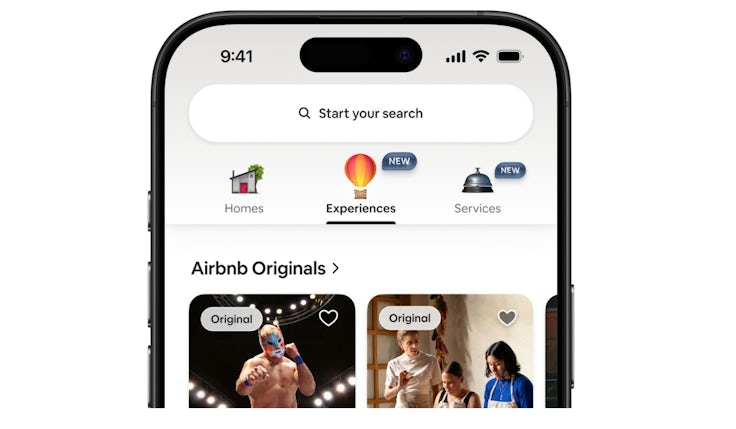‘You have to deliver on the fundamentals’: Inside Bupa Global’s marketing team transformation
Having committed to investing in its marketing talent and empowering its team, Bupa has turned marketing into a growth driver, says global marketing director Pardeep Duggal.

Three years ago, Bupa Global’s marketing team was in a difficult position. Its marketing was fragmented, campaigns weren’t as effective as they could be, and marketing was seen as a cost.
Struggling with the combined challenge of a team with poor visibility internally and lack of “clarity” externally, something had to change.
In early 2023, the business appointed Pardeep Duggal as its global marketing director – a newly created role to bring six teams together across the globe: marketing strategy and planning, brand and studio, marketing communications and risk, rest of world marketing, UK marketing and digital transformation and experience.
Previously, the responsibility had been split across two roles, so it meant introducing a new team dynamic.
‘All wearing the same jersey’: Why Highspring connected multiple brands with a single identity
With each team having its own leader, the first step was to bring them together to break down any barriers between departments.
“You have to create a connection between them, but unless my leaders emulated that, I wasn’t going to get any cut through with the others [on the team],” she says.
Bupa’s global marketing team is large, with around 100 marketers across the globe. “I very deliberately focused on what my leadership team needs to look like,” she says. “I can’t influence 100 people across six different countries, so what I did was focus on my leadership team.”
Today, the marketing team is seen as a “growth engine” with a new team culture, new strategy and fresh way of working.
Resetting
Key to increasing marketing’s internal and external influence was mapping out the shape of the team. The team looked at what roles and skills it would need in the future, before redesigning it “from scratch” and adding 20 new roles, from planning to strategy and digital product.
Bupa also focused on upskilling its current marketers, leading to 10% of its team being promoted.
Marketing leadership brought in more training, combined with expert speakers, career workshops, and mentoring. Duggal emphasises the importance of “working in a culture that values personal and professional development” together.
“Delivery is your ticket to the game,” says Duggal. This is something she’s emphasised to her team across its transformation journey. “If my function is not delivering, I’m not going to be taken seriously. You have to deliver on the fundamentals.”
As a leader, Duggal celebrates marketing and marketers. However, the joy of marketing also needs to be joined up with the overall business plan and P&L – something some marketing teams still struggle with, whether through businesses not offering them insight or struggling with the skills.
‘We’ve put marketing in context’: Inside HSBC’s team evolution
“For us to drive influence, we need to know the commercial numbers – I’m always surprised about how few marketers know what drives profit,” she says.
“We’re really creative, and we talk about the magic and logic of marketing,” she adds. “But unless you know the numbers as well and what drives profitability, you cannot be taken seriously because you cannot articulate the value of marketing to those numbers.”
For a marketing team undergoing change and transformation, being clear on what you can deliver to support the business to gain credibility is “your starting point”, says Duggal.
Gaining your team’s confidence
For any marketing leader new to a business and pursuing transformation, it can take hard work to get the team on board. They might have seen a leader come in before with big ambitions and little execution or are sitting in the comfort zone and worried about what change might bring.
To gain the wider team’s confidence and support them in the plan, Duggal focused on “trust and psychological safety” and brought in wider teams at Bupa, like talent development, to bring them on the journey.
“My team needed proof points,” says Duggal on how she convinced her team the plan was working. “And that was me delivering to support their commercial objectives.”
It was the team receiving a significant amount of money to invest in marketing technology that was a turning point in the team seeing the mission was working. This money “wasn’t ever on a transformation map,” she adds, but gaining it allowed the team to take her “seriously”.
How a reboot took the BBC’s marketers from ‘servants’ to strategic partners
A three-year team-driven transformation could be daunting. However, showing it as incremental change helped show the team Bupa’s ambitions could be achieved.
“You eat the elephant chunk by chunk,” says Duggal. “I always know we’re going to get there, but what’s the next six months?”
It was always going to be a three-year plan, she adds, broken down into steps. One step was launching 12 products in two years, which the team doubted was possible at first, but achieved. Similar is true for its technological transformation and the new website.
Bupa also launched its first “unified” global brand platform across 149 countries, ‘We Can’, which brings together its B2B and B2C propositions. The business describes it as not just a tagline, but an “internal rallying cry and an external differentiator”.
Proving the results of a team transformation is “amazing” from the point of view of seeing how positively marketers react to it, says Duggal – plus, the finance team now asks marketing what it needs, rather than trying to cut.
“I think it’s a far more interesting and stretching challenge to work for a business that perhaps hasn’t got the foundations right, perhaps is on a journey, and you can be empowered, and you can influence that industry,” says Duggal.
“Things are tough in businesses,” she adds. “But if you look for it, you will always find an opportunity to sell the benefits of marketing.”







